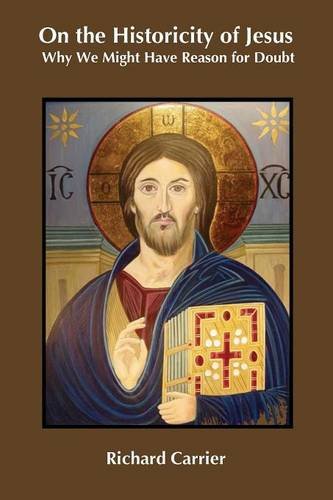
This will be the final post in my multi-part summary of Richard Carrier’s On the Historicity of Jesus: Why We Might Have Reason for Doubt. After going over our background information, evidence outside the Bible, Acts, the Gospels, and most of the Epistles (which are all more likely if Jesus didn’t exist than if he did), we finally get to the best evidence there is for historicity (the theory that Jesus existed as a historical person instead of a celestial deity). Continue reading